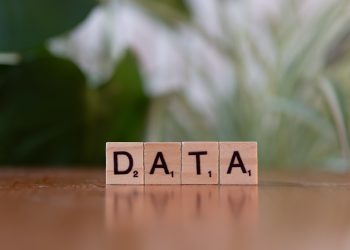No products in the cart.
The Role of AI in Military and Defense: Navigating Ethical Challenges
AI is reshaping military and defense sectors, raising ethical questions and new job opportunities. Discover its implications for the future.
Washington, D.C. — The integration of artificial intelligence (AI) into military and defense sectors is transforming traditional paradigms. As nations invest billions into AI capabilities, ethical dilemmas arise alongside the potential for enhanced operational efficiency. The stakes are high, involving not only national security but also the moral implications of deploying AI in warfare.
Recent reports indicate that the global military AI market is projected to reach $30 billion by 2026, growing at a compound annual rate of 14.5% from $10 billion in 2021[1]. This surge in investment has sparked debates about the ethical ramifications of AI, particularly in areas such as surveillance and autonomous weapon systems.

As military applications of AI expand, the ethical concerns multiply. The use of AI in surveillance systems raises significant questions about privacy and civil liberties. For instance, facial recognition technology deployed by defense agencies has been criticized for its potential to infringe on individual rights. The U.S. Department of Defense (DoD) has acknowledged these concerns, implementing guidelines to ensure responsible use of AI technologies[2].
Moreover, the advent of autonomous weapon systems poses a unique ethical challenge. These systems can make life-and-death decisions without human intervention, leading to fears of accountability in warfare. Experts argue that delegating such critical decisions to machines could undermine the moral responsibility that is central to military operations[3].
The rise of AI-driven systems necessitates a workforce equipped with specialized skills.
The Workforce of Tomorrow in Defense
As AI technology advances, so does its impact on job markets within the defense sector. The rise of AI-driven systems necessitates a workforce equipped with specialized skills. The DoD is actively seeking professionals with expertise in machine learning, data analysis, and cybersecurity to support its AI initiatives.[4]
According to a report by the World Economic Forum, up to 85 million jobs may be displaced by automation by 2025, but 97 million new roles could emerge that are better suited to the new division of labor[5]. This shift presents a significant opportunity for young professionals entering the workforce. Training programs focused on AI, robotics, and data science are increasingly being integrated into university curricula, preparing graduates for careers in defense.
Counterpoints and Broader Perspectives
Critics of military AI argue that the rush to integrate advanced technologies into defense strategies could lead to unintended consequences. For instance, the potential for an AI arms race is a pressing concern. If one nation develops superior AI capabilities, others may feel compelled to follow suit, escalating tensions and increasing the likelihood of conflict.
Additionally, ethical frameworks around AI in defense are still evolving. National and international bodies are grappling with how to regulate the use of AI in warfare effectively. The United Nations has initiated discussions on the need for legally binding agreements to govern autonomous weapon systems, highlighting the complex interplay between technology and international law.
Despite these challenges, the defense sector is at a critical juncture. Stakeholders must balance technological advancements with ethical considerations. Organizations like the AI Ethics Lab are working to establish guidelines that ensure AI is used responsibly in military applications. These initiatives aim to foster transparency and accountability in AI deployment, helping to build public trust.
Looking Ahead: Preparing for an AI-Driven Future
The future of military and defense industries is inextricably linked to the advancement of AI technologies. For young professionals, the emphasis on AI will likely shape the landscape of employment in the sector for years to come. The demand for skilled workers who can navigate these complexities will only increase.
Additionally, ethical frameworks around AI in defense are still evolving.
As the industry evolves, educational institutions must adapt by offering programs that align with the skills needed for this new frontier. Partnerships between universities and defense contractors can facilitate internships and training opportunities, bridging the gap between education and employment.
In conclusion, the integration of AI into military and defense sectors is not merely a technological advancement; it is a profound shift that requires careful ethical consideration and proactive workforce development. As we navigate these changes, the future will demand a new generation of thinkers and leaders ready to tackle the challenges posed by AI in defense. Embracing this opportunity could redefine national security and individual rights in the digital age.











